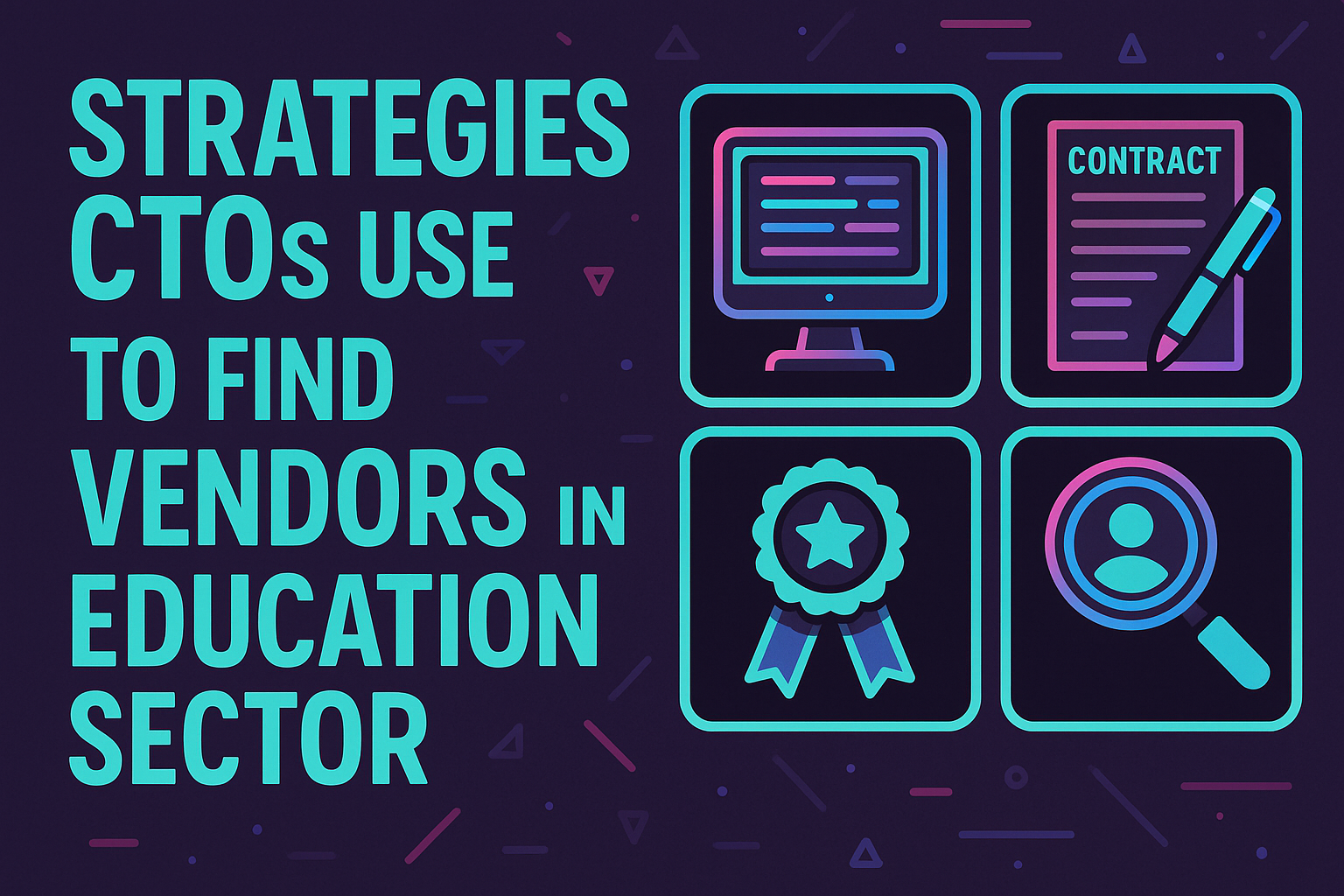Schedule a Demo
The education sector presents unique challenges and opportunities for technology implementation. CTOs in this space must navigate a landscape that demands solutions tailored to educational environments, from classroom management systems to robust data analytics for student performance. In my experience working with CTOs in various industries, I've seen how the educational sector often requires a higher emphasis on user-friendly interfaces and scalability to accommodate fluctuating student numbers and curriculum changes.
One of the most effective strategies CTOs employ is leveraging their professional networks. These networks can include other CTOs, industry conferences, and educational technology forums. I've observed that by engaging with peers, CTOs can gain insights into which vendors are currently excelling in the education space. Recommendations from trusted colleagues often carry significant weight and can streamline the vendor selection process.
Online platforms and directories specific to the education sector have become invaluable tools for CTOs searching for vendors. Platforms like EdSurge or Education Week provide comprehensive listings and reviews of educational technology solutions. From my interactions with CTOs, I've learned that these platforms not only help in identifying potential vendors but also offer a sense of community where professionals can discuss and rate their experiences with different products.
RFPs remain a cornerstone in the vendor search process for CTOs in education. These formal documents allow CTOs to outline their specific needs and invite vendors to submit proposals that meet those requirements. I've found that well-crafted RFPs can attract high-quality submissions from vendors eager to work in the education sector, providing CTOs with a diverse pool of options to consider.
Beyond the technical capabilities of a vendor, CTOs in the education sector also prioritize cultural fit. It's crucial that the vendor understands the unique culture of educational institutions and can align their solutions accordingly. In my discussions with CTOs, I've noted that vendors who demonstrate a genuine understanding of educational values and practices tend to be more successful in securing contracts.
Case studies and references play a pivotal role in the vendor selection process. CTOs often request detailed case studies from potential vendors to see real-world applications of their solutions in educational settings. From my perspective, this not only helps in assessing the vendor's track record but also provides insights into how their solutions might be adapted for specific institutional needs.
Vendor demonstrations and trials offer CTOs a hands-on opportunity to evaluate the suitability of a solution. These sessions allow CTOs to see the product in action, ask questions, and assess how it might integrate with existing systems. Based on available research, individual results may vary, but in my experience, CTOs who engage in thorough trials tend to make more informed decisions.
Scalability and future-proofing are critical considerations for CTOs in the education sector. Educational institutions are dynamic environments, and the technology solutions they adopt must be able to grow and adapt. I've seen CTOs prioritize vendors who can demonstrate that their solutions are not only suitable for current needs but also adaptable to future technological advancements and changes in educational policy.
Cost is always a factor, but CTOs in education must balance it with the value the solution brings. This means looking beyond the initial price tag to consider long-term benefits, such as reduced administrative burden, improved student outcomes, and enhanced data security. In my work with CTOs, I've observed that those who focus on value rather than just cost often achieve better outcomes for their institutions.
Data security and compliance with educational regulations are non-negotiable for CTOs. With the sensitive nature of student data, ensuring that vendors adhere to standards like FERPA (Family Educational Rights and Privacy Act) is paramount. I've found that CTOs who prioritize these aspects tend to build more trust with their stakeholders and protect their institutions from potential legal and reputational risks.
The procurement process in educational institutions can be complex and time-consuming. CTOs must navigate through various stages, from initial vendor selection to contract negotiation and implementation. In my experience, CTOs who are proactive in understanding and streamlining this process can significantly reduce the time to deployment and ensure smoother integration of new technologies.
Finally, CTOs in the education sector often aim to build long-term relationships with their chosen vendors. These relationships are crucial for ongoing support, updates, and potential future collaborations. I've seen that when CTOs invest in nurturing these relationships, they benefit from better service, quicker issue resolution, and a partner who is more attuned to their institution's evolving needs.
